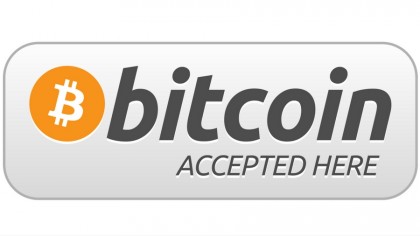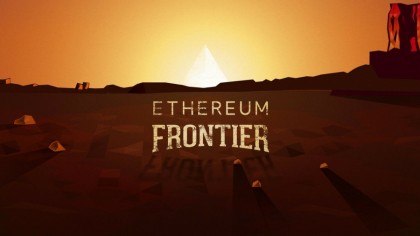Bitcoin vs distributed ledger vs Ethereum vs blockchain
Forget vague notions of trust – code is law on these new transactional platforms

We're often being told that the blockchain – the tech behind Bitcoin – will rewire not just the banking sector, but social security payments, healthcare and even digital voting. Until now, it's all been theoretical tech industry talk. However, in recent months there's been a flurry of interest from the wider world, and some big developments that look set to shape a future blockchain economy.
It emerged recently that China will use blockchain for making social security payments, while Australia has proposed using blockchain to run its voting systems. Meanwhile, Hillary Clinton has publicly backed using blockchain for public services.
Is blockchain – and its associated technologies and platforms, including Bitcoin and Ethereum – about to blossom from being an obscure niche technology to become the basis of a new kind of global public infrastructure?

Store, share and secure
As a way to store and share data with high integrity – where data is protected from malicious attacks and where every change is recorded and audited – blockchain could help make the world's data safer. But as with any sector of emerging tech, there are competing standards, incompatible systems and a constant stream of new innovations and platforms.
"Blockchain can be thought of simply as a shared ledger, with the technology behind the scenes ensuring that it is secure, up-to-date, and tamperproof," says Jaco Cebula, Chief Technology Officer at investment services company Multrees. "Access to this ledger can either be public or private depending on the application."
- We have compiled a list of the best bitcoin exchanges

The commodification of trust
Blockchain is all about trust, or rather, 'trustlessness', through clever cryptography. Malicious attempts to view or change the data become part of the data itself, making third-party hacks immediately obvious.
"A blockchain is the database equivalent of writing in indelible ink, rather than in changeable pencil. If you try to change it after you've written it, people are going to notice afterwards," says Dave Hrycyszyn, director of strategy and technology at digital agency Head. You don't need to trust other people, you can trust the system. Online trust becomes a commodity.
Are you a pro? Subscribe to our newsletter
Sign up to the TechRadar Pro newsletter to get all the top news, opinion, features and guidance your business needs to succeed!
Competition time?
Don't confuse these terms with actual products. Blockchain – also known as distributed ledger – is a technology, not a product. It's most famously been used to create cryptocurrency (Bitcoin) and to make smart contracts (Ethereum), and many more uses will follow, each with a new name.
"The technologies that underpin blockchain – distributed data and cryptography – have been available for a long time," says Cebula. "It is the linking of them together into a single technology that provides the benefits … there are no similar offerings."
Apps and smart contracts
While Bitcoin is infamous, Ethereum has a far lower profile. But it could help the blockchain have a far greater impact. A decentralised platform for applications that run exactly as programmed without any chance of fraud, censorship or third-party interference, Ethereum extends blockchain beyond cryptocurrency. It's currently being talked-up as a possible successor to Bitcoin.
"Like Bitcoin, Ethereum can act as a currency, this time called 'ether'," explains Hrycyszyn, but Ethereum's blockchain goes much further by adding the capability to write smart contracts into the blockchain that are automatically executed when specific conditions are met.
"You could have a bet saying 'watch the BBC news feed and transfer two units of ether to my friend Ramsey if Donald Trump becomes President of the United States'," says Hrycyszyn. "The contract would be executed automatically by the Ethereum system, if the conditions specified in the contract are met … proponents of smart contracts think that they could be the basis of entirely new economic models in the future."
Top Image Credit: Barclays

The next big thing?
According to Don and Alex Tapscott in their book 'Blockchain Revolution: How the technology behind Bitcoin is changing money, business, and the world', Ethereum is the second-longest public blockchain (after Bitcoin), and the fastest-growing.
According to Tapscott and Tapscott, Ethereum, which went live in July 2015, is considered "the next big thing – not just for business, but for human civilisation" by some coders, entrepreneurs and corporate strategists.
"Ethereum is like Bitcoin in that the 'ether' motivates a network of peers to validate transactions, secure the network, and achieve consensus about what exists and what has occurred," reads Blockchain Revolution. "But unlike Bitcoin it contains some powerful tools to help developers and others create software services ranging from decentralised games to stock exchanges."
Run by a Swiss non-profit organisation, this developer-friendly platform employs special computer language that can be used to write smart contracts into the Ethereum blockchain. But it's still a blockchain.

Ethereum's error
All new technologies involve learning curves and teething problems, and Ethereum has been no different. In terms of creating confidence in a new technology, there's a chance that Ethereum has already blown it. In June, an anonymous coder tricked a smart contract belonging to virtual firm Distributed Autonomous Organization (DAO) into executing multiple times, extracting around $80 million (about £60 million, AU$105 million) worth of ether.
"It caused a loss of confidence, which knocked about 25% off ether's value in a few hours," explains Hrycyszyn. "In response, the people who cryptographically create the ether decided to amend the history by simply ignoring the fact that the attack had ever occurred."
Since Ethereum's contracts are defined in computer code, stored in a blockchain, and executed by Ethereum itself, Ethereum's controllers were able to 'hard fork' the ledger's history and delete the fact that there was ever an attack. That kind of intervention goes against the whole point of the blockchain's 'trustlessness' ethics in the first place.
"Arguably, the attacker simply executed the smart contract's code, as it was written," says Hrycyszyn. "Ethereum made it too easy to code a stupid contract instead of a smart contract, but a lot of very vocal people felt that the contract should have been honoured."
As a result, the future of Ethereum and smart contracts is up in the air. But the blockchain? With China and the US destined to adopt it in some form, its future seems secure.
- Also check out: Is 'utopian' blockchain tech doomed to fail?
Jamie is a freelance tech, travel and space journalist based in the UK. He’s been writing regularly for Techradar since it was launched in 2008 and also writes regularly for Forbes, The Telegraph, the South China Morning Post, Sky & Telescope and the Sky At Night magazine as well as other Future titles T3, Digital Camera World, All About Space and Space.com. He also edits two of his own websites, TravGear.com and WhenIsTheNextEclipse.com that reflect his obsession with travel gear and solar eclipse travel. He is the author of A Stargazing Program For Beginners (Springer, 2015),
